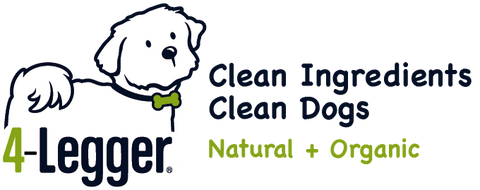Do You Need a Prescription for Medicated Dog Shampoo? What Pet Parents Should Know
If your dog is itchy, smelly, or constantly licking their paws, it's tempting to grab a bottle labeled "medicated dog shampoo" or wonder if you need to ask your vet for a prescription.
Some medicated shampoos are sold over the counter, others are prescription only, and the labels don't make it easy to understand the difference.
Unfortunately, when you start shopping, you'll find a flood of medicated dog shampoos on the market.
Quite frankly, the increase in pet shampoo products over the past ten years hasn't been a good change for the pet grooming industry.
The shelves are crowded with products that promise quick fixes but often deliver toxic chemicals - leaving pet parents washing their dogs (and even cats) with treatments for conditions they don't actually have.
If you missed our earlier articles about medicated dog shampoo, check them out here:
- Do you Really Need a Medicated Dog Shampoo
- Why Medicated Dog Shampoos for Allergies Isn't the Answer
Even worse, these shampoos aren't regulated for marketing terminology, ingredient purity, or claim validation, making it all too easy to misuse them.
So here's the real question: Do I need a prescription for medicated dog shampoo?
Over-the-Counter vs. Prescription Medicated Dog Shampoos
1. Over-the-Counter (OTC) Medicated Dog Shampoos
- Available without a prescription.
- Contain lower-concentration actives like chlorhexidine (~2-3%), benzoyl peroxide (~2.5%), ketoconazole (~1%), miconazole (~2%), sulfur, or coal tar.
- Marketed for "itchy skin," "hot spots," or "yeast" - but often used when they're not truly needed.
2. Prescription Medicated Dog Shampoos
- Available only through your veterinarian.
- Stronger active ingredients or higher concentrations, e.g. ketoconazole 2%, miconazole 2% paired with 2-4% chlorhexidine.
- Intended for diagnosed bacterial or fungal infections (ringworm, resistant staph, yeast dermatitis, or severe seborrhea).
When a Prescription May be Necessary
Prescription shampoos matter in specific cases:
- Confirmed fungal infections (e.g., ringworm).
- Serious bacterial skin infections.
- Chronic seborrhea that requires keratolytic agents.
But here's the reality: the vast majority of itchy dogs don't fall into these categories.
The Risks of Using Medicated Shampoos When They Aren't Needed
💡 Medicated shampoos can be helpful for a true infection - but when used "just in case," they may:
- Dry and strip the skin, weakening its barrier.
- Expose your dog to unnecessary antifungals or antibacterials.
- Mask symptoms rather than solving the real problem.
Over time, that can make skin more vulnerable to yeast, bacteria, or allergens.
Healing Starts Beneath the Surface
Most itchy, smelly dogs aren't dealing with a primary infection. Their skin problems are often tied to:
- Allergies (food or environmental)
- Yeast overgrowth triggered by gut imbalance or too many carbs
- Immune stress from over-vaccination or chronic inflammation
- A compromised skin barrier from harsh shampoos or poor nutrition
🌿 The solution isn't stronger chemicals - it's supporting the skin inside and out:
- Feed a species-appropriate, low-carb diet to reduce yeast fuel. (Learn how to calculate carbs in dog food)
- Work with your vet to balance vaccines and immune health.
- Bathe with safe, USDA Certified Organic shampoos that cleanse and soothe without stripping oils.
A Natural Alternative That Works
For allergy- or yeast-prone dogs, try 4-Legger COOLING Tea Tree & Peppermint Dog Shampoo:
- 🌿 Tea Tree Oil - gentle antifungal and antibacterial support.
- ❄️ Peppermint - cools and calms irritated skin.
- 💧 Aloe and Coconut Oil - hydrate and repair the barrier.
- ✅ USDA Certified Organic - no sulfates, parabens, or artificial fragrance.
Use as part of a holistic plan: clean diet, stress reduction, and a vet-guided approach if there's a true infection.
📌 Bottom line: Unless your vet diagnoses a chronic bacterial, fungal, or seborrheic condition, medicated shampoos - OTC or prescription - should never be the first step.
Most itchy dogs need:
- Better nutrition and gut balance
- Gentle cleansing to remove allergens and dirty sebum
- Support for the immune system and skin barrier
- A safe and non-toxic shampoo with supportive ingredients to reduce the bacteria and yeast on the skin
That's why 4-Legger focuses on safe, organic care that helps your dog's skin thrive naturally - without unnecessary chemicals.
Next up in our series is: How Does Medicated Dog Shampoo Work and Is it Too Harsh For Every Day Use





